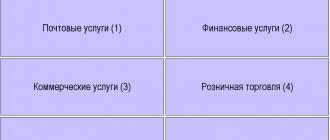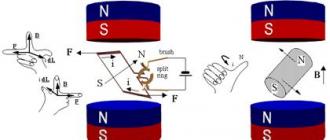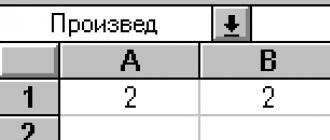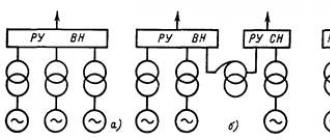Pirated (illegal) content can be a game, film, book, training course or something else posted on the network without the author's permission, since he would hardly have given the go-ahead - a person earns and will not allow someone to deprive it earnings.
True, there are exceptions to this rule - these are the few authors who do not prevent the pirated distribution of their product.
For this, there may be, for example, the following reasons:
- the author considers it free advertising your brand,
- if the product is old, then sooner or later it may get into open access and there will be no profit from it.
Let's start in order.
One of the reasons for the emergence of pirated content
Let's say a user wants to watch a TV series or movie, and the official video is uploaded (posted) by the copyright holder to a slow hosting like Rutube.ru with mandatory advertising before watching.
Some users do not have the patience to wait for the episode to load and annoying ads to pass, so they go to the tracker (torrent), look for the desired movie and quickly get it.
This is just a simple example of how film copyright holders lose profits (albeit minuscule) on displaying mandatory ads, since their main income comes from showing ads on large media platforms during the distribution of the series.
Publishers lose their earnings in the same way computer games, books, music labels and film studios. Many users reason like this: why waste money when you can download it for free.
Where can I see illegal content?
The largest "suppliers" free games, films and books are forums.
There are users on the forums who have a licensed product on their media (or a product purchased on the official website of its copyright holder). They bought it on their own at full cost, or in a joint effort, about the latter in a little more detail.
There are sites where a corresponding topic is created on the forum with an announcement of a pooling for a specific product. At a certain moment, the pool is closed, after which the cost of the product is divided by the number of participants in the pool, and thus the amount of contribution for each participant in the pool is determined, usually a small amount. Then the participants pay this amount to the organizer's account. The organizer buys the product at full price on the official website, and then provides the opportunity to download this product to all the participants in the joint.
Sometimes the organizer of the pooling hires someone to break into the security of the product so that it is available to everyone. The actions of the organizer and the participants in the joint are not legal, because the author of the product did not give his consent to such distribution of copies of his product.
How does pirated content get on the web?
It is not difficult to guess that a product acquired by a joint effort is quickly leaked to the Internet, for example, in distribution for torrents.
The user (let's call him Robin Hood), who purchased the product at full price or in a joint effort, considers it his duty to publish this product for all other forum participants, explaining this, for example, by fighting the greed of the copyright holder of the product. Therefore, the user Robin Hood generates a torrent file so that other users (users) of the forum can download the file with the product to their computer for free.
Then the user Robin Hood uploads (posts) this product to the site (or forum) under the guise of a regular discussion topic with beautiful design (title, preview, content info and screenshots). Next, searchers for free content enter a query like "download this for free." The search engine searches and usually finds a topic on the site (forum) and gives the user a link to this topic.
He goes from a search engine and downloads the product to his computer via special programthat supports the .torrent format.
What pirated content looks like
On torrents (trackers), files are published in a closed form. This means that in order to start using it, you need to download the file to your computer. Client games also belong to such files, since you cannot use the game without installing (without installing) on \u200b\u200byour computer.
As for the form in which illegal music, films and books are posted - controversial issue... Most often, on some video hosting site, you can see the posted movie. Agree, it is convenient and simple: I looked and closed it, without first downloading it.
It's the same with online music, for example. How many free songs are there. Yes, there are artists promoting their work on the Internet and posting their tracks for free, but there are also audio recordings on social networks uploaded (posted) without the permission of the copyright holder. Often this even applies to some exclusive albums.
There is also such an opportunity as “reading online”. This concerns text documents, in particular, books. Authors sell their rights to some major publisher. The latter earns from the sale of books. But now there is a problem - few people appreciate the paper version, and electronic versions are gaining more and more popularity, which can be easily sent (merged) to the Internet.
Where do repacks from torrents and serials from VKontakte disappear?
Repak - this word is borrowed from of English language - RePack, can be translated as "repack".
Repacks are made in order to create their programs, games, applications based on original programs, games, applications created by their developers, by making some changes to them, for example, translation into another language or some other changes. Repacks are sometimes uploaded on torrents.
Sometimes when trying to play a video or audio recording of VKontakte, you may notice the inscription “The file was public access in connection with a complaint about copyright infringement ”.
With what this is connected, it is immediately clear - the copyright holder presented the administration of the social. network documents confirming its authorship for this product. This means that only the owner has the right to decide what to do with his brainchild. All actions performed by other persons are canceled.
The same situation is with torrent trackers: the legal owners present the documents to the administration of the resource, and the distribution is closed.
An example is the Russian publishing house 1C. In April 2015, on popular forums, users posted a link to download a hacked version of the GTA 5 video game published by 1C. Not even an hour passed when each distribution was closed at the request of the Russian publishing house.
I read somewhere that Russian TV series have very strict copyrights and this is the difference between TV series and a full-length film. The fact is that the film is distributed for several weeks, and then the filmmakers do not care, since there will be practically no profit from the film.
A completely different matter is the rental of serial films on TV, which runs for a long time, and can be repeated for several years. During this time, the authors of the series can earn money from showing ads.
Online services
AT recent times all over the world, the direction associated with. It is convenient in the sense that you can do many things online without downloading programs or installing them on your computer. Therefore, online services can be considered a kind of replacement for torrents and forums.
Alexander M.
Alexander, to answer this question, you need to deal with the materiel - copyright.
Ekaterina Miroshkina
economist
Newsletters, e-books, paper books, online courses, photos and texts have an author. Only he can decide how to dispose of the results of his labor.
In law
With rare exceptions, you cannot do anything with other people's courses, books, photographs and texts, if the author did not directly allow this - for you personally or for everyone in general. If the author did not specifically forbid you to distribute his book, this does not mean that he allowed you to do so. If you do not have permission, you have not bought the result of someone else's work or do not quote it according to the rules, then you are breaking the law.
Lack of prohibition does not count as consent
It does not matter at all where you took these courses, books or photographs. It doesn't matter if you sold them or donated them. If the rights of the author or the person to whom they belong are violated, he has the right to demand compensation under the law.
The author determines the exact amount of compensation himself, and then it is approved by the court. Many authors take advantage of this and successfully defend their rights. Judicial practice confirms that for one photo you can easily get 10 thousand rubles and even more, let alone a book or a large mailing list.
On practice
The author has the right to demand compensation from you, but in practice this does not mean that he will demand it. Copyright protection does not happen automatically: there is no copyright police to go online and check if you have stolen anything.
For example, if you shared an album by an independent music group, its members will hardly have time to run around the courts with you. But if you shared an album published by a large publishing company, then its lawyers can easily figure you out and start the process. Large publishers have entire anti-piracy departments, and it will not be difficult to get into their monitoring.
Nuances
Let's figure out the nuances about the fact that it was not you who stole the work and did not earn anything from it.
If the copyright holder finds out that you are distributing his courses, a book, or using a trademark, he can go to court. You will be the defendant. And that's when you must prove that you have not violated anything. In your case, this is hardly possible.
And the copyright holder must prove only that he has rights - for him it is elementary. Moreover, the presumption of authorship is implied: the author can even not provide documents, his name on the book or the mailing site is enough.
The fact of copyright infringement, illegal distribution of books, courses, mailings, lessons and photographs is an independent violation. It doesn't matter where you got them as long as it's illegal. There are nuances with actions in the interests of an agent or guarantor, but this is definitely not your case. Referring to the action in someone else's interest or because of extreme necessity is also unlikely to work.
The Intellectual Property Court recently issued a landmark ruling. A female entrepreneur wanted to help a neighbor in a shop. While she was away, she sold a disc with a famous cartoon to a buyer from someone else's department. It was a test purchase, and the disc turned out to be pirated. As a result, the copyright holder demanded money not from the one who actually bought and sold the counterfeit discs, but from the one who only handed them over to the buyer, although he did not earn anything from this.
If you bought a pirate
Interestingly, even if you pay for a pirated copy or counterfeit goods and seem to become a bona fide buyer, this will not help you to evade responsibility.
Bought computer program on a pirate disc and resell it - you break the law. Found a link to a copy of the book and share it for free on the forum - you are breaking. Even if you just wanted to help and shared something that another person illegally downloaded, you also violated copyright.
When you can
You can use copyrighted works for your own personal use. For example, listening to music or watching movies at a family gathering. Although only you bought the disc, your family, friends and guests can also listen to it.
It is possible and not in personal, but in strict accordance with the law and subject to restrictions. For example, you can sing songs without a phonogram at a concert at school, or cite other authors in informational and scientific articles. It is necessary to quote carefully: the author may think that his rights have been violated, and he will go to court.
Examples
Situation. You bought an online course, archived all lessons, and shared the download link.
Violation or not? This is a violation of the author's rights. If he finds out, he can demand compensation from you. Which one - he will decide for himself.
Situation. You bought a book and gave it to a relative to read.
Violation or not? This is not a violation, you are using the work for your own personal use. So it is possible.
Situation. You are writing a book review on a topic and using quotes or screenshots from the works of other authors. Indicate the source, author's name and take small excerpts from the text for the article strictly on the topic of the article.
Violation or not? This is a quotation. You can do this without permission and do not pay anything for it.
Violation or not? This is a violation. It doesn't matter that you received this link from a third party. And it doesn't matter that you didn't make money on it. Distribution of someone else's work without the permission of the author is an independent violation, and compensation may be required from you.
Situation. You buy online courses, eBooks, lessons from mailing lists, and then sell them for less.
Violation or not? If they prove that you have made money on it, they can be fined and even confiscated your computer. There is also criminal liability for the sale of counterfeit software, books or courses on a large scale. So it's serious.
Situation. You bought the program, honestly paid money for it, and not just downloaded it on a closed forum. But you knew that the program or the key to it is pirated.
Violation or not? You broke the law. Even confirmation of payment won't help. The only chance to avoid responsibility is to prove the absence of guilt. The statement that you allegedly did not know that it was counterfeit is not an argument for the court.
There are many nuances in copyright. This is a large and complex topic. But if you buy licensed programs, honestly pay for courses, subscriptions and books, and do not help others save money by violating other people's rights, you are not in danger.
If you have a question about personal finances, expensive purchases, or family budget, write: [email protected] We will answer the most interesting questions in the magazine.
The battle of the social network "Vkontakte" with the record companies in the first round ended in victory for the latter. The court of first instance - the Arbitration Court of St. Petersburg and the Leningrad Region - found Vkontakte LLC guilty of violating the intellectual property rights of SBA Production and SBA Music Publishing (Gala Records group of companies) on the composition of the Infinity group and the singer Maksim. The court ordered Vkontakte to pay compensation in the amount of 220,000 rubles, partially satisfying the claim. The copyright holders requested about $ 1 million.
Apparently, this may be the first time that Vkontakte will pay for illegal content on its servers. A lengthy trial with VGTRK, which began in 2008, eventually ended with the cancellation of the decision to pay compensation.
Vkontakte's line of defense was based on the fact that pirated content was posted by users themselves without the knowledge of the Vkontakte administration. However, the court did not heed the arguments of the defense and found the social network guilty of "reproducing and bringing the compositions to the public on its website." The specific wording of the guilty verdict will soon be published as part of the reasoning part of the court decision.
Olga Kim, deputy director general of Gala Records, has no doubts about the justice of the verdict. In an interview with Vedomosti, she explained that there is a lot of unlicensed content on Vkontakte's servers, and users themselves cannot delete it: they can only delete the link to the song from their page, but the pirated file itself is saved on the server and is available to others.
Based on the resolution of the Presidium of the Supreme Arbitration Court of the Russian Federation No. 6672/11 of 11/01/2011 in the ifolder case, both the owners of file-sharing services and social networks are responsible for unlicensed content, if they do not take preventive measures against downloading illegal content, they themselves initiate its download, create technological conditions for copyright infringement or are passive about infringement. According to Olga Kim, social network Vkontakte violated all these conditions specified in the ruling of the Supreme Arbitration Court.
Resolution of the Presidium of the Supreme Arbitration Court of the Russian Federation No. 6672/11 dated 1.11.2011
Courts should take into account the degree of involvement of the provider in the process of transferring, storing and processing information, the ability to control and change its content. The provider is not responsible for the transmitted information if he does not initiate its transfer, does not choose the recipient of the information, does not affect its integrity, and also takes preventive measures to prevent the use of objects of exclusive rights without the consent of the copyright holder.In this regard, when considering similar cases, the courts need to check: whether the provider has received profit from activities related to the use of the exclusive rights of other entities, which were carried out by persons using the services of this provider; whether there are restrictions on the amount of information posted, its availability for an indefinite circle of users, whether the user agreement contains the user's obligation to comply with the law Russian Federation when posting content and the unconditional right of the provider to remove illegally posted content; the absence of technological conditions (programs), contributing to the violation of exclusive rights, as well as the presence of special effective programs to prevent, track or delete posted counterfeit works.
The courts should also evaluate the actions of the provider to remove, block the controversial content or access the offender to the site upon receipt of a notification from the copyright holder about the fact of violation of exclusive rights, as well as in case of another opportunity to learn (including from wide discussion in the media) about the use of its Internet -resource in violation of the exclusive rights of others. In the absence on the part of the provider within a reasonable period of action to suppress such violations, or in the event of his passive behavior, demonstrative and public removal from the content of the content, the court may recognize the provider's guilt in the committed offense and bring him to justice.
Considering modern development the Internet, such a legal position can also be applied when the owners of social and file-sharing Internet resources are held liable.
More than half of Internet users in Russia (55%) cannot distinguish between legal and illegal content, 30% of those surveyed by sociologists distinguish pirated from legal content, 15% found it difficult to answer.
Such data as reported "Russian newspaper" were obtained during the new research held by the Public Opinion Foundation (FOM) together with the magazine "Internet in numbers" .
The inability to distinguish "good" content from "bad", sociologists believe, is due to the vagueness of the concept of "legal" on the Web and the lack of clear criteria for distinguishing between the one and the other.
The main criterion for legal content, according to 27% of respondents, is its high quality. 24% are sure that the fees charged for access to it indicate the legality of the content. 9% believe that legal content is the one that becomes available after registering on a particular resource, 6% rely on intuition. Pay attention to the warnings about copyright protection in the links to authorship of 5% of the respondents.
24% of Russians who took part in the survey are ready to pay for legal content. In their opinion, for a fee they will receive music or video of higher quality (29%), take care of their safety (20%). 11% expressed their willingness to pay for content out of respect for the work of authors.
In turn, those who are not ready to pay for legal content explain their decision by the high cost of content (40%) and the absence of a difference between legal or pirated content, or simply unwillingness to pay (18%).
Nevertheless, the authors of the study consoled that 24% of those who are willing to actually pay for viewing or downloading information - in absolute terms, this is about 13 million people. This is enough to create a massive market for paid content on the Web.
Pirate downloading of resources from the Internet has become the norm for Russians
69% of Russians who have access to the Internet are users of free online resources, and only 9% consider downloading films, music and other content on the Internet a crime. These are the results of a survey conducted by the Recruiting Portal Research Center SuperJob.ru .
However, Russians do not use free online resources to replenish their home collection of films and music because they want to annoy the state or take away their hard-earned money from musicians, directors and producers. The reason is simple - it's free.
"We pay 1,300 rubles for the Internet. If you also pay for online resources, it will be too expensive"; "I only use them"; "If you look closely, these resources are not free, since you have to pay for traffic and electricity"; “It is very profitable and convenient,” the respondents comment.
Only those who do not know how do not pump. And the government is to blame
Among the fans of downloading free content, men are more common (71% versus 68% among women). It is not surprising that our young fellow citizens under 25 use such resources more often than others (78% versus 29% among Russians over 55).
31% of Russians do not use torrent trackers. Most of them either do not know how to do it, or do not find the time to find the necessary resources: "There is not enough knowledge to do this"; "I don't have time for this."
Only 10% of Russians consider it a crime to receive free content from the Internet. Moreover, among users of torrent trackers such 9%, while among those who do not use these services - already 15%.
It is noteworthy that men more often than women believe that free download information on the Internet is a crime (12% and 8%, respectively), although they prevail among the users of torrent trackers.
And even those who are convinced of the criminal nature of such actions, they still call the main violators not the visitors of free online resources, but the state and the government.
"The prices for the products are high, so people have to look for other ways to listen to music and watch a movie"; "But I also think that it is also a crime to make people feel that they cannot buy licensed programs and films"; "I don't shake, but I understand people who do it for the sake of profit," they comment.
In Russia, a program is being introduced that prevents the download of pirated films or music from the Internet
A Russian firm specializing in anti-piracy software has entered into an agreement with the Association of TV and Film Producers of Russia to create technology to combat pirates in torrent networks. It is alleged that by September 2011, copyright defenders will be able to block access to free movies, music and programs from the web. It is planned to paralyze pirated distributions with the help of fake torrent clients. However, fans of the free distribution of information will find an answer to this, experts say.
The start-up company Internet Content LLC, as part of its Pirate Pay project, will release for commercial sale a product that allows copyright holders to independently block illegal distribution of copyright content in torrent networks or set their own price for its "distribution", reports "Russian newspaper" .
The Pirate Pay project, which was first mentioned in mid-2010, is, according to its creators, "a unique solution in world practice to combat the spread of unlicensed content on the Internet." In March this year, the development company received a grant in the amount of 100 thousand dollars (about 3 million rubles) from the Microsoft investment fund, created in cooperation with the Skolkovo Foundation.
According to the general director of the company Andrey Klimenko, some Russian and foreign copyright holders have already become interested in the product. "This is an independent project that we are developing on our own," he explained to journalists.
Unlike other existing models of combating web piracy, which involve tracking, prosecuting and punishing distributors of counterfeit content, Pirate Pay is focused on "preventive blocking" of already existing illegal content and copyright protection for newly emerging content of all kinds: films, music, software, etc. etc.
The essence of the technology is that a special set of technical means will allow the copyright holder to block access to his own film or music by creating a large number of "fake" participants in the file-sharing network.
When communicating with real participants, they will send them information about where the films and music they are interested in are located - but links will be given to pages with legal, that is, paid content. The user will be able to pay and receive for viewing or listening to content in a variety of ways.
Pirate Pay, according to its creators, will allow copyright holders "to enter into dialogue with all tracker owners, offering to actually jointly distribute legal content."
At the same time, outwardly almost nothing will change for ordinary users. When the user wants to download the desired protected movie from the torrent tracker, he will see the "pay" button. If he doesn't pay, he won't be able to download the movie.
For copyright holders, copyright protection will cost 300,000 rubles a week for the duration of the film's distribution, while copyright protection for "small forms" will cost from 30,000 rubles a week. Developer Commission software up to 15% of the content sale price. How much it will cost to download a fresh blockbuster for an ordinary user of file-sharing networks is not yet known.
Pirates are ready for an "arms race"
Experts, however, doubt that Internet piracy can be stopped technical means, notes "Rossiyskaya Gazeta".
Firstly, distributors of illegal content, sadly, go one step ahead, and almost every action related to copyright protection on the Internet is immediately "antidote".
For example, as soon as the copyright holder blocks the distribution of a pirated file, users of the torrent network will immediately create a new one, he suggested in a conversation with "Gazeta.Ru" Alexey Demin, Sales Manager in the corporate sector of G Data Software in Russia and the CIS
In addition, the effectiveness of "anti-torrent programs" can be minimized due to the emergence of dozens of new resources or the distribution of pirated versions of films in local networks, within which users of a particular provider can create own directories with information available for download.
Finally, users of "closed torrent trackers" who do not use the special DHT (Distributed Hash Table) data transfer protocol will continue to download pirated copies of movies and music.
Secondly, the fight against a file already posted on the Web is a fight against the effect, not the cause. A number of experts believe that the current law enforcement practice related to the closure and prosecution of both the creators of torrent trackers and those who download pirated content is of much greater benefit.
Although measures such as the requirement to remove illegal content, as well as the prosecution of offenders, do not work in Russian conditions yet.
Meanwhile, the issue of protecting legal content in Russia is more serious than ever. According to experts, in pirate file-sharing networks there are about 50 million copies of films and are open for downloading.
For the new season of their favorite series, illegally downloaded from the Internet, Russians will have to fork out. The Russian authorities are considering introducing a system of penalties for consumers of pirated content. Copyright experts say such a measure would be completely ineffective. According to them, it is not bans but the availability of legal products that will help push pirates.
AT this moment in the power structures, interdepartmental consultations are underway on sanctions for fans to download the film for free without SMS and registration. The initiative of the Ministry of Culture of the Russian Federation, which proposed to allow pre-trial blocking of sites that distribute illegal content, is considered as a working option. However, the Ministry of Communications and leading Internet providers did not support the initiative.
If the appropriate amendments to the anti-piracy law are not made, the fighters against illegal video production have a plan B. They propose to collect money from violators using a special system, similar to which already operates in Germany. The fact of illegal downloading will be determined by the user's IP address. It will be used to calculate the home or legal address, where they will send a receipt with a fine. In European countries, where a system of personified fines is in place, consumers of unlicensed content have to pay up to 1,000 euros.
Those familiar with the consultation process told reporters that the participants in the discussion recognize penalties for users of more effective remedy fighting online piracy than blocking sites. As the story of blocking torrent file storages and other web resources has shown, even the most inexperienced users can easily get around it.
Officials also said that at the preliminary stage, they are discussing the introduction of a system of fines for the illegal viewing of only domestic film products - films with a national film certificate. The state is ready to spend resources to protect the copyrights of Russian studios. There is no talk of protecting the legitimate interests of foreign filmmakers yet. In addition, all consultations are currently not of an official nature.
The idea of \u200b\u200bpenalizing users is not new. In 2014, a similar amendment to the anti-piracy law was introduced by the deputy of the State Duma of the Russian Federation Sergey Zheleznyak. However, the norm was not included in the final text of the bill. The experts then decided that it was "too early" to introduce such responsibility in Russia.
The Ministry of Telecom and Mass Communications, on the one hand, believes that it is wrong to shift responsibility to users, especially since often not only viewers, but also professional lawyers do not fully understand where the border between permitted and prohibited content lies. On the other hand, the head of the department, Nikolai Nikiforov, although “not sure if it is necessary to introduce this (fines) in the Russian Federation”, believes that the distribution of illegal video “is always the responsibility of both the one who posted the pirated content and the one who it is consuming it in a pirate manner ". According to Nikiforov, ideal model there is no fight against piracy, but the most effective way in Russian conditions, "mirrors" will be blocked.
Copyright experts say that penalizing users is an inherently losing strategy. According to Aleksey Byrdin, the head of the Internet Video Association, it is not users who should be prosecuted, but the criminal business involved in counterfeit content. “It turns out that we don’t want to fight pirate websites or we don’t know how, so we’ll go to fight with users. And not with those who download, but with those who consume,” says Maxim Ryabyko, head of the Association for the Protection of Copyright on the Internet (his the words are quoted by RNS).
Pavel Rassudov, chairman of the headquarters of the federal convention of the Pirate Party of Russia, says that it is illegal to fine users: in our country there is already a compensation fee for digital media in the amount of 1% of the cost, which covers the authors' losses from the free distribution of information on the Internet. In addition, it will be technically very difficult to control illegal aliens: “Is it technically possible to track users who download information? Theoretically, this can be done through providers. and download via VPN "(quoted by Rosbalt).
The head of the Center for the Protection of Digital Rights Sarkis Darbinyan also refers to the simplicity of anonymizing users on the Internet, who also considers the proposed method of combating piracy ineffective. According to him, quoted by Life.ru, all over the world they refuse from personalized persecution of users, and Germany, to which the authors of the initiative refer, has remained almost the last country where they are still trying to fine for illegal downloading.
Blogger and screenwriter Oleg Kozyrev is confident that the authorities should aim not at repressive measures, but at maintaining a balance of interests between the filmmaker and the viewer. The problem is not that people are reluctant to pay for movies, but that legal content is hard to find. “The threat of a fine will not stop people. They download illegally for two reasons: either they cannot find what they would like to see in legal access, or they don’t have the money to buy it legally. It is difficult to fight this, and it is better to go not through fines, but so that legal content becomes available to the viewer. First, films should appear more or less quickly in digital libraries. Second, the price of viewing should be close to the real income of people, "the expert said.
German Klimenko, Advisor to the President on Internet Development, was also skeptical about the idea of \u200b\u200bintroducing fines for illegal downloading of films. On the air of the radio station "Life Sound", he said that this measure is untimely. "Even if we suddenly wanted to do this, so fiercely defend copyrights, it seems to me that both modern traffic encryption and modern VPN protocols simply will not provide a high-quality performance of this work and discredit it. Therefore, I would not support this story yet," - he said.






